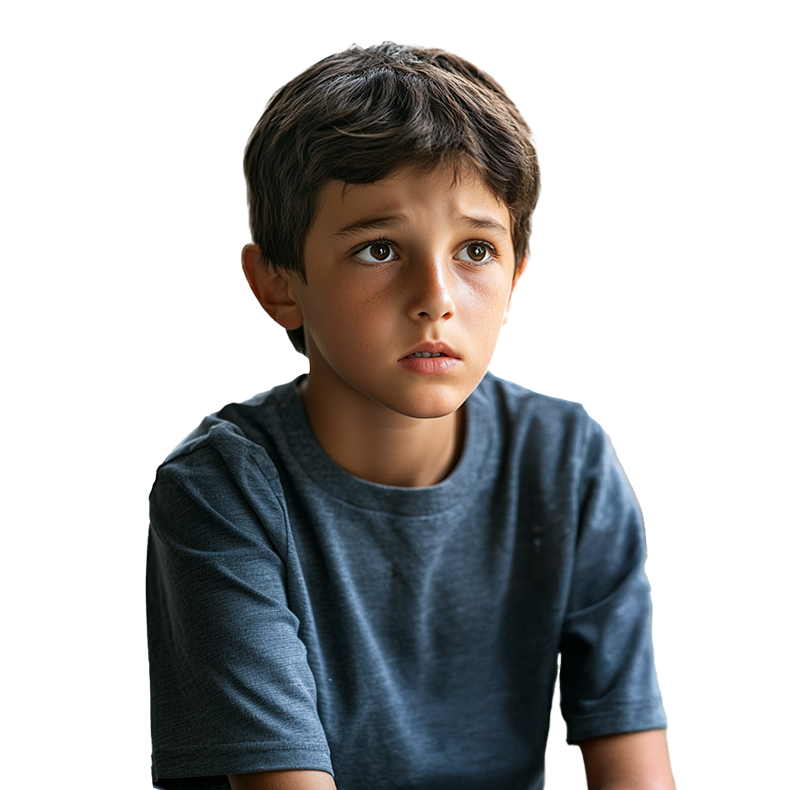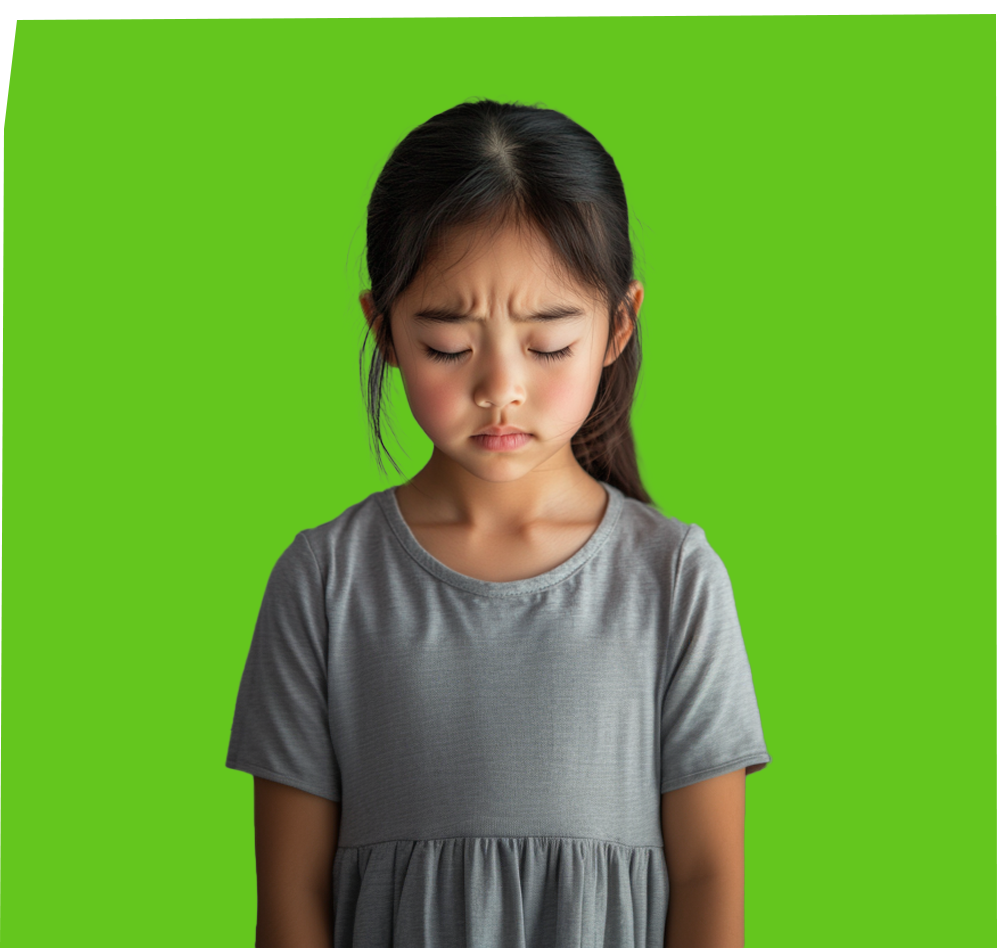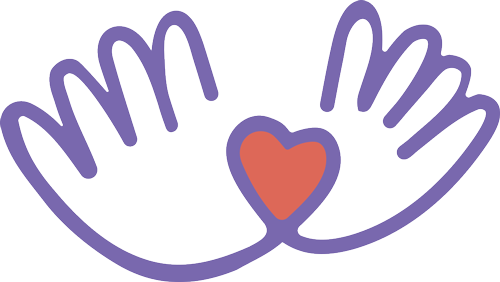Programs & Services
Healing, Support, & Safety for Survivors
Learn about our free therapy programs, resources, and how to access help
Counseling
Restoring Hope, One Session at a Time
Every child deserves the opportunity to heal from trauma in a safe and supportive environment. Our licensed therapists provide expert, evidence-based counseling to help children and families process their experiences, build resilience, and regain control of their lives.

Education & Support
Empowering Parents and Caregivers with Knowledge
Healing doesn’t happen in isolation. We provide families with the education and support they need to navigate the emotional and practical challenges of child sexual abuse. Through expert-led resources, we help caregivers become strong allies in their child’s recovery.

Prevention
Education and Intervention for a Safer Future
Preventing child sexual abuse requires proactive education, awareness, and intervention. Our prevention programs equip children, families, and professionals with the knowledge and tools to recognize and prevent abuse.

Advocacy
Collaboration for the Best Possible Outcomes
We believe every child deserves justice, protection, and a path to healing. Through strong partnerships with law enforcement, legal professionals, and community organizations, we ensure that children receive the support and advocacy they need.

Restoring Hope, One Session at a Time
Every child deserves the opportunity to heal from trauma in a safe and supportive environment. Our licensed therapists provide expert, evidence-based counseling to help children and families process their experiences, build resilience, and regain control of their lives.
Empowering Parents and Caregivers with Knowledge
Healing doesn’t happen in isolation. We provide families with the education and support they need to navigate the emotional and practical challenges of child sexual abuse. Through expert-led resources, we help caregivers become strong allies in their child’s recovery.
Education and Intervention for a Safer Future
Preventing child sexual abuse requires proactive education, awareness, and intervention. Our prevention programs equip children, families, and professionals with the knowledge and tools to recognize and prevent abuse.
Collaboration for the Best Possible Outcomes
We believe every child deserves justice, protection, and a path to healing. Through strong partnerships with law enforcement, legal professionals, and community organizations, we ensure that children receive the support and advocacy they need.

Comprehensive Therapy & Support to Help Heal
The Children’s Center for Hope & Healing provides specialized therapy for children, teens, and adults impacted by child sexual abuse. Our licensed therapists use evidence-based methods such as play therapy, art therapy, and cognitive-behavioral interventions to help even the youngest survivors heal.
We work closely with families to create safety plans, teach self-protection skills, and reduce trauma symptoms—ensuring a path to recovery for every child.
It's important to get help
Understanding Childhood Sexual Abuse
Unfortunately, many children never tell about sexual abuse and recognizing the signs or symptoms of sexual abuse can be difficult if not impossible since some children show no signs at all and others show signs that are non-specific and could indicate a number of other problems.
If a child does disclose, how a parent, school teacher, counselor, or other adult responds is extremely important and can make a big difference in a child's recovery and long-term outcome.
0x
Young girls who are sexually abused are 3 times more likely than girls who are not abused to develop drug or alcohol abuse problems or psychiatric disorders in adulthood.

Why Children Don't Tell
Why do some children stay silent?
There are many reasons that children often do not tell that they are being sexually abused. These reasons often include:
- Often younger children do not have the words to express what has happened to them. Sometimes this is a matter of they do not have the words to name their own body parts. Other times, they may not have any words for the actions they have experienced.
- Younger children may not be aware that what they have experienced is wrong.
- Abusers may threaten the child or threaten people that the child loves. An abuser might say something like "if you tell anyone, I'll kill your little sister."
- Children may care about their abusers, especially since the majority of abusers are known to the child.
- Children may not wish to get their abusers in trouble or may not wish to upset their parents.
- A child may feel responsible for the abuse he or she has suffered for a number of different reasons. Abusers are almost always very manipulative people. They may convince a child that the child has participated willingly or they may have given the child special gifts, favors, or attention that the child feels guilty about having accepted.
- An abuser may have engaged in a process of gradual desentization or "grooming" in which a child's defenses are worn down. This can increase a child's sense of guilt about participation.
- Often when children do tell, they tell only part of the story to test an adult's reaction or to work up their courage to tell the whole story.
- The child may believe that no one will believe them.
- The child may be depressed as a result of the abuse.
- The child may have "learned helplessness" from the abuse.
- The child may be obeying the directions of the abuser, especially if the child has been taught to follow the directions of adults.
- The child may lack the maturity to know how to handle the situation.
Be Aware
Possible Signs of Child Sexual Abuse
Many children who have been sexually abused exhibit no signs or symptoms at all! Many of the symptoms of child sexual abuse such as depression, sleep problems, or anxiety are also symptoms of many other possible problems. The lists below are not exhaustive. Some children may experience unusual symptoms. The symptoms below are simply some of the most common.
Physical Signs
Possible Sexual Abuse
Behavioral Signs
Possible Online Sexual Exploitation
Behavioral Signs
Possible Sexual Abuse
* in children who previously did not have a problem with bed wetting
If you or Someone You Know Needs Help
If you believe a child is in immediate danger, please call 911.
You can also make a report of suspected child abuse by calling the office of your local Department of Family and Children's Services (DFCS) or by calling the prevent child abuse hotline, toll-free: 1-800-CHILDREN (1-800-244-5373).

To Receive Help From Our Services
To receive help from one of our program services, simply call (770) 532-6530 or fax a referral form to 770.532.7111.
